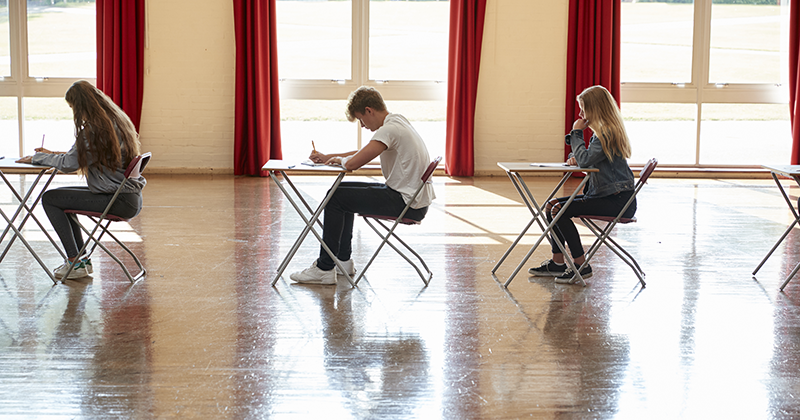Children in home education died or were abused because “the protective factor that school can offer was missing from their lives”, an independent review has found.
The Child Safeguarding Practice Review Panel, which exists to conduct reviews of serious child safeguarding cases, has published a report about 27 referrals received between August 2020 and October 2021 about 41 children who were not in school.
The children at the focus of the reviews were “subjected to sexual abuse, physical abuse, and neglect”. Six children died and 35 others were “seriously harmed”.
The panel has added its voice to calls for a statutory register of children not in school.
It comes after a Schools Week investigation revealed the rate at which children left the classroom for home education doubled last year.
Analysis suggests around 140,000 pupils were home-educated at some point last year, and government data shows a further 117,000 are “missing” from education entirely.
Of the 41 children, the “data available” suggested 29 were in elective home education, while six others “appeared to be children who could be described as children missing education”.
The panel said it “recognises that most children who are electively home educated are safe, thrive and live happy lives”, and said home education “is not, in and of itself, a safeguarding risk”.
“However, while the number of electively home educated children who are harmed or are at risk of serious harm is comparatively low, the protective factor that school can offer was missing from their lives and this had serious, and sometimes fatal, consequences for their safety and welfare.”
‘Less visible’
The panel found that home educated children who were the focus of safeguarding reviews were “less visible to safeguarding agencies than those who attend school”.
The children were “therefore not in the ‘sight’ of agencies who have a statutory duty to protect them from harm”.
The panel found a “range of harms that may be associated with a child not having the everyday access that is provided by schools and other education settings to the world outside their home and family”.
Children who were the focus of serious safeguarding incidents “generally had weak links with people and networks outside their immediate family”.
Twenty-one of the children had never attended school. Eleven had previously attended state secondary school, eight had been to state primaries and one had been to a pupil referral unit.
Of the children who died, three committed suicide, one died from an undiagnosed eating disorder, one had undiagnosed leukaemia and one was stabbed.
Of the other children 20 experienced physical neglect, 16 suffered physical abuse, 10 suffered sexual abuse and eight had their “access to food restricted, were malnourished and underweight”.
‘Out of sight’
Twenty-three children were previously known to children’s social care as children in need or were subject of a child protection plan. But over half of the children “appear to have been kept out of sight of any agency”.
Many of the children lived in houses with known domestic abuse or with a parent with mental or physical ill health.
The panel also said that data suggested the education of 12 children who were seriously harmed was “focused on religious or faith-based teaching”.
Seven siblings described “exposure to religious or faith-based views associated with prolonged physical chastisement”.
They had “no access to the internet, TV or radio and were isolated from others in the world outside the home”.
Four children in another sibling group “described being educated about the parents’ chosen religion only and they also experienced physical and emotional abuse”.
Lack of powers and funding
The report found that practitioners lacked the legislative powers and guidance to get “regular access to children who are educated at home”.
There were “examples of intentional misuse of digital visits and other contacts by parents so that the visibility of what was happening to children was greatly reduced”.
Elective home education teams in councils “can lack necessary capacity and safeguarding knowledge”. Some teams only consist of “one or two part-time staff”, and a lack of funding was “cited by a number of stakeholders as a significant issue in some areas”.
The panel said the evidence presented “reinforces the need for a statutory register so that relevant statutory organisations know which children are being home educated”.
“This will not of itself protect children, but it will help safeguarding agencies to have better local knowledge about this group of children.”
The government should also consider whether a duty should be placed on parents to “inform the local authority when a child is to be educated at home”.
‘Most’ home-educated children ‘happy and safe’
The report also backed plans to make schools a fourth statutory safeguarding partner.
The panel concluded that while “most children” educated at home have “happy and safe lives…a small minority do not”.
Children who are educated at home and where there is a risk of abuse and neglect “will not be able to benefit from the protective care that school can provide.
Children who have never been to school are “especially at risk of becoming invisible, rendering agencies much less able to act to protect them when necessary”.
“It is important that government acts to increase and clarify the scope and responsibilities of local authorities, including through the establishment of a national register to ensure that there is knowledge about which children are being electively home educated.”
A DfE spokesperson said “any incidents of abuse relating to children are abhorrent, and the cases highlighted in this report are truly tragic”.
“Local authorities have a legal duty to safeguard children in their areas, regardless of how they are educated, and we expect them to use their safeguarding powers when warranted.
“We support parents who choose to home educate, providing that education is safe and suitable, and are working closely with Flick Drummond MP on a new law that will mean councils must maintain children not in school registers.”











